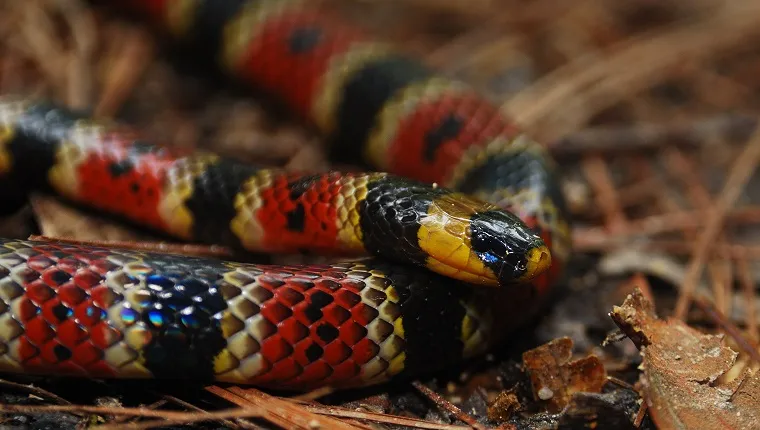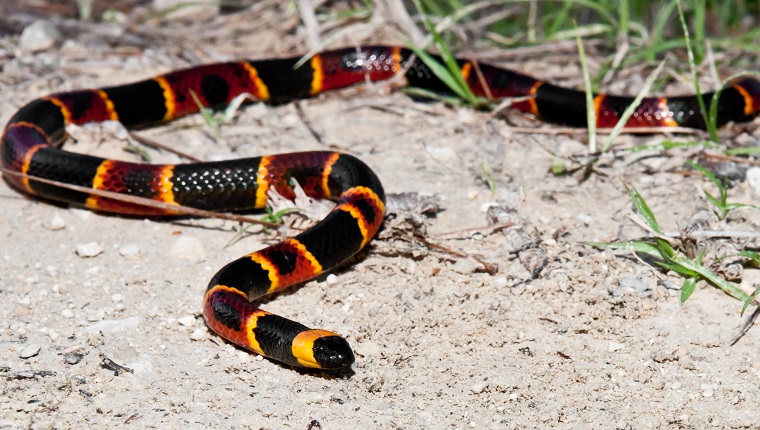Coral snake bite poisoning in cats happens when a cat is bitten by a venomous coral snake. While coral snakes are seen as reclusive creatures, their bites can result in paralysis and breathing problems in cats and become life threatening.
You can identify coral snakes by their red, black, and yellow band markings. In general, if you notice that your kitty has suffered from a snake, seek out medical attention straight away.
If you see signs that your cat is developing the symptoms poisoning, then you must consult your veterinarian immediately. Here’s what you should know about the symptoms, causes, and treatments of coral snake bite poisoning in cats.
Symptoms Of Coral Snake Bite Poisoning In Cats
Coral snake bite poisoning in cats can produce a variety of symptoms. The symptoms can also be delayed for up to 18 hours after a feline is bitten.
Some of the most common symptoms include:
- Drooling
- Paralysis
- Convulsions
- Breathing problems
- Collapse
- Shock
- Diarrhea
- Not being able to meow
Causes Of Coral Snake Bite Poisoning In Cats

The cause of coral snake bite poisoning in cats is the powerful venom injected when a coral snake bites. In general, coral snakes are reclusive creatures, but curious kitties might feel tempted to disturb them.
Again, you can identify coral snakes by their three-colored yellow, red, and black band markings. Generally, the larger the coral snake, the more venom they can inject, causing more severe symptoms.
Bites that occur closer to the cat’s heart have a higher likelihood resulting in severe or life-threatening effects.
Veterinary Treatments
If you notice that your cat has been bitten by a coral snake, seek out medical attention immediately. Your vet will want to ask about your cat’s recent activities and try to identify any situations where they may have come into contact with a coral snake.
Your vet will also ask about your cat’s medical history in a bid to rule out any other conditions. If you ever notice your cat in close proximity to a snake, try to take a photo with your phone so that your vet can quickly identify the type of snake if needed.
When it comes to treatment, the process involves a stay in hospital. The vet will administer antivenom medication to your cat. Sometimes, vets may also prescribe antibiotics to fight off any potential infections that could arise.
As ever, if your vet prescribes any medicine for your kitty, it’s imperative that you stick to the correct dosage and frequency instructions and complete the full course of medication.
Has your cat ever been bitten by a coral snake? How did your vet treat the poisoning? Tell us all about it in the comments below.









